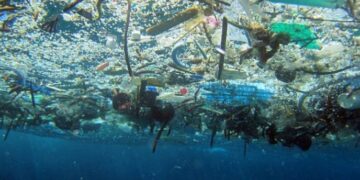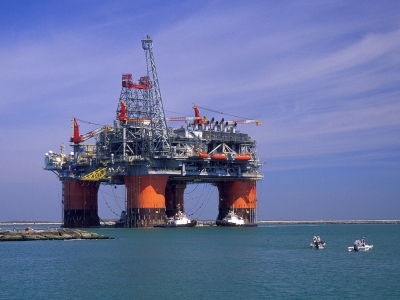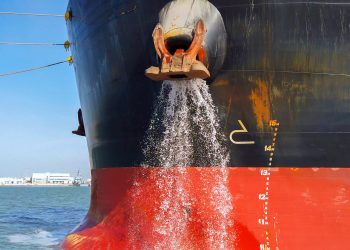Shell has emerged as one of the top offenders
Serious spills of oil and gas from North Sea platforms are occurring at the rate of one a week, undermining oil companies’ claims to be doing everything possible to improve the safety of rigs.
Shell has emerged as one of the top offenders despite promising to clean up its act five years ago after a large accident in which two oil workers died.
Documents obtained by the Guardian record leaks voluntarily declared by the oil companies to the safety regulator, the Health and Safety Executive(HSE), in a database set up after the Piper Alpha disaster of 6 July 1988 which killed 167 workers. They reveal for the first time the names of companies that have caused more than 100 potentially lethal and largely unpublicised oil and gas spills in the North Sea in 2009 and 2010.
They also deal a significant blow to the government’s credibility in supporting the oil industry’s fervent desire to drill in the Arctic. Charles Hendry, the energy minister, has said operations to drill in deep Arctic waters by companies such as Cairn Energy off Greenland are “entirely legitimate” as long as they adhere to Britain’s “robust” safety regulation.
Shell has been at the forefront of plans to drill in the Arctic waters of the Beaufort and Chukchi seas.
The documents, released under freedom of information legislation, record leaks classed by the regulator as “major” or “significant”, which, if ignited, could cause many deaths.
The two rigs with the most frequent oil spills are owned by Shell and the French conglomerate Total. Shell executives regularly claim in public that safety is their most important commitment. Last November, Peter Voser, the Shell chief executive, said: “Safety is, has been, and forever will be, our number one priority. It is our core value.”
The Shell-run platform responsible for the most spills, Brent Charlie, first began pumping oil in 1976 from its location 115 miles (180km) north-east of Scotland.
The documents record seven leaks on it over the two-year period, with the worst happening on 26 April last year when four tonnes of leaked gas from one of its columns led to a shutdown of production.
On another occasion, on 30 September 2009, safety inspectors ordered Shell to stop producing oil from Brent Charlie after gas leaked from its ventilation system. Last Friday, the HSE formally threatened to close down some operations on Brent Charlie within two weeks over undisclosed safety issues. Since January this year, Shell has stopped exporting oil from the rig and three others in the Brent oilfield as the company struggles to put right safety problems.
Critics say the oldest rigs, built in the 70s when oil was found in the North Sea, are the most dangerous and fear safety is neglected as the platforms come to the end of their productive commercial life. Shell came under intense criticism over its safety record in 2006 when a judge ruled that it could have prevented the deaths of two men if it had properly repaired a hole in a corroding pipeline on a platform in the Brent field. In the same year, one of Shell’s own safety consultants, Bill Campbell, alleged that safety procedures in the North Sea had been ignored for years.
Shell’s then chief executive, Jereon van der Veer, admitted in a private email at the time that the company had a second-rate safety record and pledged to spend substantial sums of money to improve it.
A Shell spokesman said: “No spill is acceptable and we have made progress. We work closely with regulators and invested over a billion dollars in recent years to upgrade facilities across the North Sea to continue this improvement of our performance.”
Other major oil companies which are high in the spills league include the Danish conglomerate Maersk and Canadian firm Talisman, which both have a rig with five leaks. Four spills came from a rig known as Mungo Etap, which is owned by BP.
Whistleblowers have told the Guardian that the list of spills recorded in the documents is the tip of the iceberg.
Other accidents are kept quiet, they claim, because workers fear they cannot report them in case they lose their jobs. One veteran said that although everyone is formally told to report anything that goes wrong, staff adhere to an informal code to remain silent to avoid a halt in drilling that loses money for the companies.
The HSE documents also undermine claims by the major oil companies that last year’s Deepwater Horizon explosion in the Gulf of Mexico that killed 11 workers was unlikely to ever happen to them.
Jake Molloy, general secretary of the Offshore Industry Liaison Committee (OILC), a union representing North Sea workers, said Deepwater Horizon showed that “even the most up-to-date, cutting-edge safety technology can go wrong if it is not maintained properly and not operated by competent people”.
He added: “We have been very lucky in the UK that we have not had another major incident with multiple fatalities. We have come very close on several occasions, very, very close. It is more luck than good management in some cases. Some operators don’t give a damn. Because of the high price of oil, they are cutting corners. Some of them are overdue for prosecution.”
Robert Paterson, health and safety director of the Oil & Gas UK, which represents the industry and aims to make Britain’s oil industry the safest in the world, said oil companies last year agreed to “redouble efforts to reduce the number of leaks by 50% over three years and many companies are building this target into their business plans”.
He rejected the whistleblowers’ concerns: “We believe there is a very high standard of compliance when it comes to companies reporting offshore incidents to the regulator and a constructive culture in the workforce when it comes to reporting health and safety concerns.”
The disclosures have provoked criticism of the government over its claims that regulation of the oil industry in the North Sea is one of the toughest in the world. Chris Huhne, the energy secretary, claimed in January that the UK’s safety and environmental regime was “one of the most robust in the world.”
Frank Doran, Labour MP for Aberdeen North, said: “Chris Huhne needs to have a rethink. There is a continuing problem, of particularly gas leakages, and that is a sign that the infrastructure in the North Sea is ageing and that maintenance and investment is still not sufficient to ensure the safety of offshore workers. There is still a long way to go.”
Source: The Guardian




























































